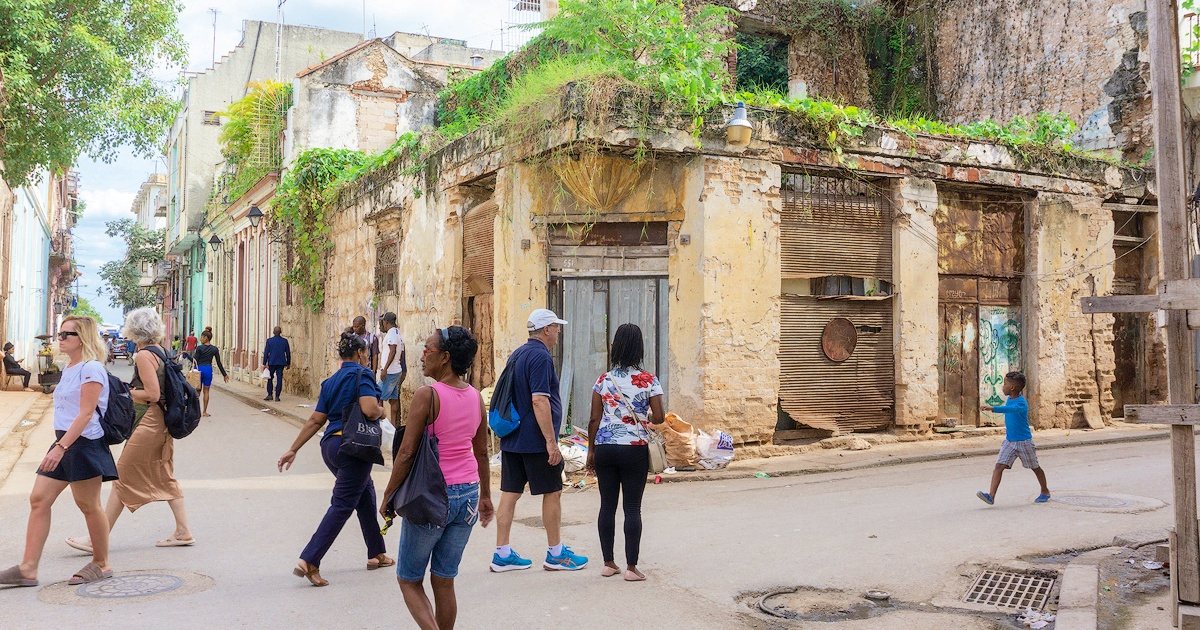The Minister of Public Health, José Ángel Portal Miranda, announced at the opening of an international event in Havana on Monday that since the Oropouche virus was detected in Cuba on May 27, over 400 cases have been confirmed on the island up to August.
"By early August, the country had recorded the presence of the Oropouche virus across all provinces, with more than 400 confirmed cases," stated the Health Minister. This figure starkly contrasts with widespread reports on social media and health entities in various provinces in recent months.
According to Portal Miranda, Cuba ranks second in the Americas for the number of infections caused by the disease, which had 8,076 confirmed cases across five countries in the region as of August 1. These include Brazil (7,284), Bolivia (356), Peru (290), and Colombia (74). The only two deaths associated with the virus were reported in Brazil at the end of July.
Portal Miranda made these declarations at the inauguration of the 18th edition of the International Course on Dengue and Other Emerging Arboviruses at the Pedro Kourí Institute of Tropical Medicine (IPK) in Havana, an event attended by officials from the World Health Organization (WHO).
The minister did not specify whether the announced figure only includes those cases confirmed through laboratory diagnostics, a resource that is scarcely applied in Cuba due to a lack of reagents and other supplies.
The number of Oropouche virus cases in Cuba reported by Portal Miranda contrasts with the 35,000 cases reported under the term "endemic channel of febrile syndrome" by the Ministry of Health in a televised table during a Round Table in early July.
Recently, the Centers for Disease Control and Prevention (CDC) in the United States issued a level 2 alert, on a scale of 4, due to the rising number of Oropouche virus cases in Cuba. U.S. authorities recommended that travelers take enhanced preventive measures to avoid contracting this arboviral disease and advised pregnant women not to travel to the island unless absolutely necessary.
This alert comes as Cuba faces an epidemiological crisis exacerbated by the rapid spread of the disease throughout the country, following the confirmation of the first cases in Santiago de Cuba in late May.
On its website, the CDC warned that "multiple cases of Oropouche have recently been reported in U.S. and European travelers returning from trips to Cuba, indicating a continuous risk."
Cuba's own Ministry of Public Health (MINSAP) has confirmed that the disease is present throughout the national territory, including the Isle of Youth. Often confused with dengue due to the similarity of symptoms, the Oropouche virus can affect individuals of all ages. Symptoms include high fever, headaches, muscle pain, joint stiffness, nausea, vomiting, chills, and sensitivity to light.
Imported Cases in Europe
Imported cases of the Oropouche virus in Europe have been increasing in recent weeks, primarily through travelers from Cuba. At least 19 cases have been detected, according to the European Centre for Disease Prevention and Control (ECDC).
In the latest update on the disease's behavior, the ECDC confirmed that the number of imported Oropouche virus cases in Spain rose to 12 between June and July, all related to travel to Cuba or Brazil, according to the EFE news agency.
Additionally, the virus is currently present in Italy (5) and Germany (2); with eighteen cases linked to travel to Cuba and one to Brazil.
By early August, the ECDC confirmed two Oropouche cases in Germany and increased the number of diagnosed cases in Italy to four. In mid-July, the ECDC reported the detection of six cases of the disease in Europe: three in Spain and three in Italy.
Understanding the Oropouche Virus Outbreak in Cuba
In light of the recent surge in confirmed Oropouche virus cases in Cuba, here are some frequently asked questions to provide clarity and important information.
What is the Oropouche virus?
The Oropouche virus is an arboviral disease transmitted by midges and mosquitoes, causing symptoms similar to dengue, such as high fever, headaches, muscle pain, and joint stiffness.
How many Oropouche virus cases have been confirmed in Cuba?
As of early August, over 400 cases of the Oropouche virus have been confirmed in Cuba, according to the Minister of Public Health, José Ángel Portal Miranda.
What precautions should travelers to Cuba take?
Travelers to Cuba should take enhanced preventive measures to avoid mosquito bites, such as using insect repellent and wearing long sleeves and pants. Pregnant women are advised not to travel to Cuba unless absolutely necessary.
